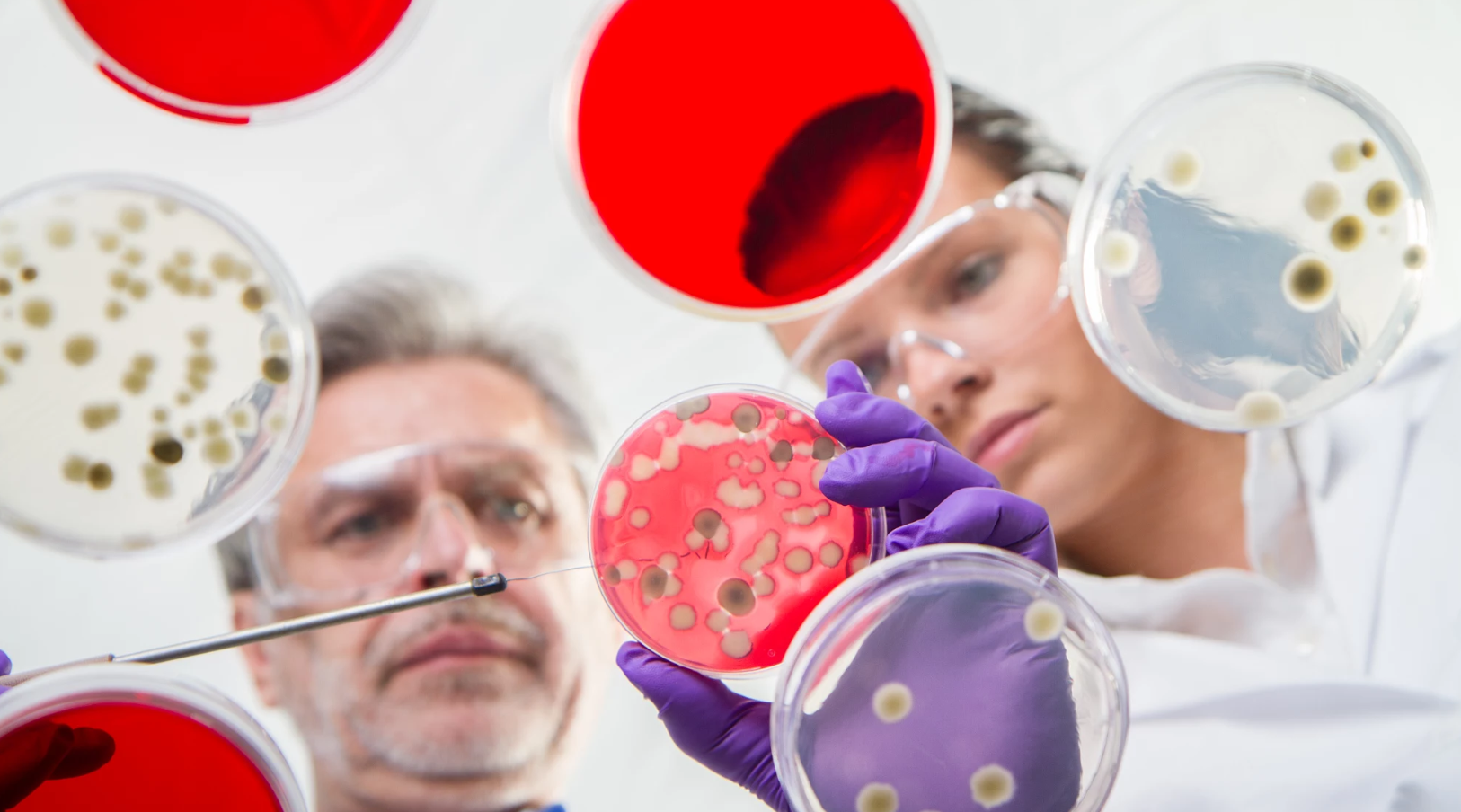Microbes on Human
Because of the presence of microbes in all walks of human life, there is a constant interaction of the microbes on human life. The vast majority of the bacteria in the body are rendered harmless by the protective effects of the immune system, and a few are beneficial. In fact, the relationship between microbes and humans is delicate and complex.

Benefits Of Microbes
PRODUCTION OF FOODS
Microbes are a key component in both home and industrial food preparation.
- Lactic acid bacteria are used to make yogurt, cheese, sour cream, buttermilk and other fermented milk products.
- Vinegar are produced by bacterial acetic acid fermentation.
- Yeast is used in the manufacture of beer and wine and for the leavening of breads. It is also involved in fermentations to convert corn and other vegetable carbohydrates into ethanol to make beer, wine, or gasohol; but bacteria are the agents of most other food fermentations.
- Other fermented foods include soy sauce, sauerkraut, dill pickles, olives, salami, cocoa and black teas.
OTHER BENEFITS OF MICROBES
- The microbes that normally live in association with humans on the various surfaces of the body (called the normal flora), such as Lactobacillus and Bifidobacterium, are known to protect their hosts from infections and otherwise promote nutrition and health.
- They help purify waste water in waste water treatment facilities.
- They help reduce atmospheric nitrogen and transform it to ammonia important for agriculture.
Negative Effects Of Microbes
An estimated 30% of bacteria are disease causing pathogens. According to health care experts, infectious diseases caused by microbes are responsible for more deaths worldwide than any other single cause. It is estimated that, at beginning of the 20th century, more than half the people who ever lived died from smallpox, caused by a virus, or malaria, caused by a protozoan. Bacteria, too, have been the cause of some of the most deadly and widespread diseases in human history. Bacterial diseases such as tuberculosis, typhus, plague, diphtheria, typhoid fever, cholera, dysentery, and pneumonia have taken a huge toll on humanity.
There are many ways that bacteria and other microbes can negatively affect human life.
- Micro-organisms, especially molds, can trigger respiratory infections and allergies if they grow in our workplaces or homes.
- Microscopic growth can also lead to fungal staining of carpets and algal growth on paint, which can be difficult and costly to remove.
- Bacteria and fungi are common causes of malodor in home textiles, clothing, and footwear.
- Bacteria and other microbes are frequent contaminants of food and water, which can lead to food poisoning and serious illness.
- Microbes are the agents of food spoilage and decomposition of clothing and sheltering materials
FIGHTING AGAINST MICROBES
In the same manner that we harness the benefits of microbes, where appropriate, we fight micro-organisms where they can do harm. There are many ways to combat microbial growth, and most involve simple measures that we can employ at home or in the workplace. For example:
- High temperatures can kill microbes, and low temperatures can slow down their growth. This is why it is so important to properly cook and to refrigerate food properly.
- Through thorough cleaning – of both hands and various environmental surfaces – we remove microbes and the debris that they feed on, which can help reduce cross-contamination from the environment to food and other exposed areas.
- Micro-organisms need humidity to grow. By keeping moisture at bay through ventilation and heating, it is possible to prevent the growth of mold and other microbes.
However, such measures are not always sufficient to keep microbes away. You can adhere to good hygiene practices and still experience mold growth on the ceiling, spoiled food, or foul-smelling carpets.




